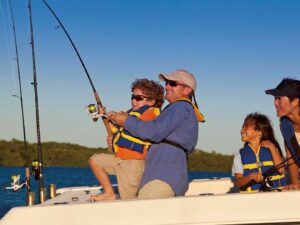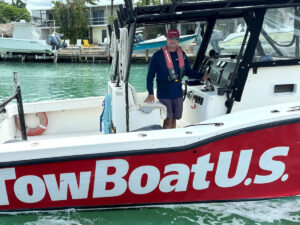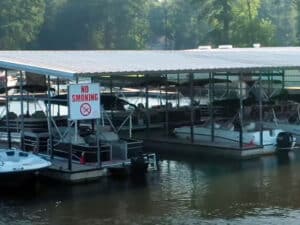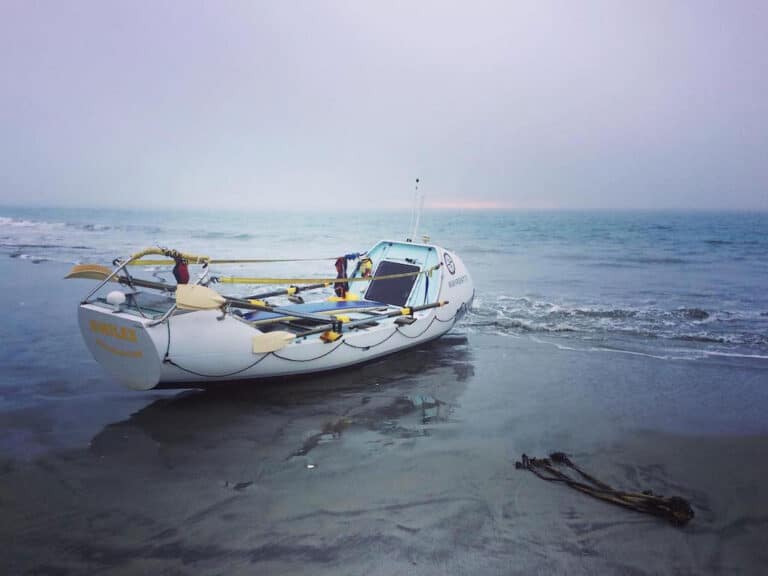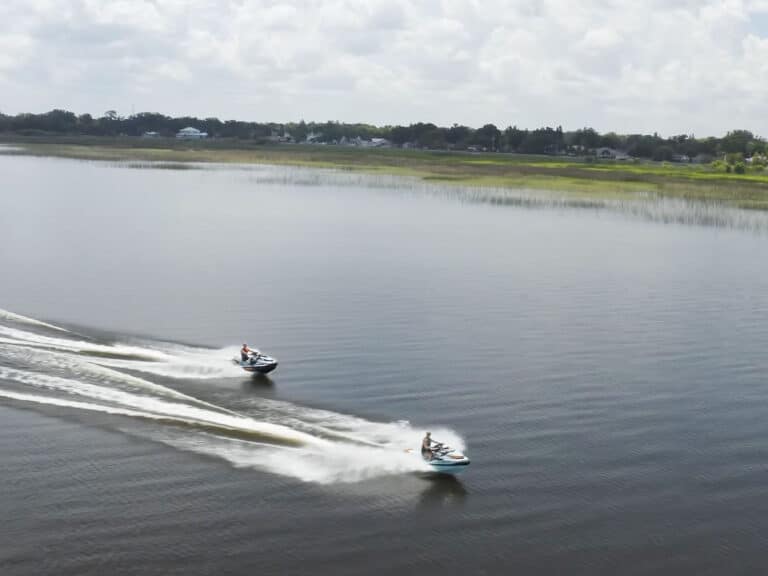
It can happen in a heartbeat: A following sea breaks over the transom, and your waterlogged boat turns turtle. Or a through-hull fails and your bilge pump can’t keep up. Maybe (sigh!) someone forgot to install the drain plug. However your boat becomes capsized or swamped, the first rule is always the same: Stay with the boat!
When someone is searching for you, the bigger “you” are, the better.
“If someone’s looking for you from a C-130 or a helicopter, it’s like looking for a basketball floating in the water,” says Christopher Todd, public affairs officer for the U.S. Coast Guard Auxiliary. The same is true if the searchers are in another boat, on the beach or a seaside cliff.
Remember the last hat you lost overboard? How quickly you lost sight of it, even though you knew it was still floating just a few boat lengths astern? Wouldn’t it have been easier to find if it had been clipped to a full-size cooler?
Adrift on a capsized boat 16 miles offshore, a palm-sized personal locator beacon was their best last chance.
Think about it: You’re the hat. The boat is the cooler. It’s a much more visible target. Your job is to stay with it until a first responder or Good Samaritan comes to your rescue. Meanwhile, grab what survival gear you can without leaving the boat: flares, distress signals, additional flotation devices (because you’re already wearing your life jacket, right?). Get your Ditch Bag; hopefully, there’s a registered emergency position-indicating radio beacon (EPIRB) or Personal Locator Beacon (PLB) in there, along with a handheld marine radio, fresh water and other gear.
Trigger the beacon’s lifesaving distress signal. If you didn’t broadcast a Mayday on VHF Channel 16 before the boat swamped, and you have a working radio, do so now. Is there other loose equipment? Tether it to the boat to make it (and you with it) more visible, or release some or all into the water to create a debris field to help catch rescuers’ eyes.
There’s another reason to stay with the boat. It’s the best way to keep everyone together, and make surviving a group effort. Together you can share warmth, faith and confidence. Climbing onto the overturned hull and huddling with others slows heat loss and the impaired judgment hypothermia can bring. “If you believe you’re going to be rescued, and don’t panic” — and stay with the boat, Todd says, “that can be a huge factor.”
Edits by Jeff Moag/Water Sports Foundation
The U.S. Coast Guard is asking all boat owners and operators to help reduce fatalities, injuries, property damage, and associated healthcare costs related to recreational boating accidents by taking personal responsibility for their own safety and the safety of their passengers. Essential steps include: wearing a life jacket at all times and requiring passengers to do the same; never boating under the influence (BUI); successfully completing a boating safety course; and getting a Vessel Safety Check (VSC) annually from local U.S. Coast Guard Auxiliary, United States Power Squadrons(r), or your state boating agency’s Vessel Examiners. The U.S. Coast Guard reminds all boaters to “Boat Responsibly!” For more tips on boating safety, visit www.uscgboating.org.

